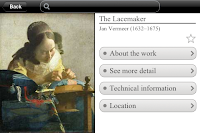I’m starting to understand Twitter, I think. This is the service (
www.twitter.com) made famous by Ashton Kutcher and other celebs who get really excited that they have thousands of people following their every move.
People post messages limited to 140 characters either from the web or from their mobile phones. The messages are broadcast to a list of followers. Posting is called tweeting. People can say anything they want, from the boring to the interesting, on Twitter. You won’t know which you are getting—boring or interesting-- until you try to follow someone who uses the service.
At first I thought this was a service for the self-absorbed. I mean, do we really need to know what celebrities are doing every moment of the day? However, I’ve come to see it as a useful way to get news about an industry, a colleague or even a cousin. People who tweet from industry trade shows, for example, post opinions about presentations or tweet industry news boiled down to its essentials. Following them clues you in to stories you might have missed otherwise.
And that colleague, well, who knew she liked to cook and was testing recipes for a cookbook? I’ve also enjoyed following one of the organizations to which I belong. Different people tweet for this organization, and the latest one reported on what a senator said to her. It’s a sound bite I otherwise wouldn’t have known and it gives the reader the feeling of being on the “inside.” Of course, you have to realize that what is being tweeted is what people want others to know. It may sound spontaneous, but it really isn’t.
One of the key features of Twitter is the ability to “Retweet” by cutting and pasting. If you get some important news, you can cut and paste it into your “What are you doing box?” and send it on to everyone who follows you. In that way, messages like the sad, terrible, unthinkable, killings at Fort Hood this week, get out even faster than ever before. Marketers love this feature too, because word of new products, gimmicks, and giveaways, travel at lightening speed.
Do Boomers tweet? Oprah does, but the jury is out on whether this media will have a lasting impact on our generation.
Some media research from Pew shows that only 9% of Boomers actually use Twitter. However, I think Twitter has a lot of application for Boomers. For one thing, it is very easy to use. You sign up, and Twitter will ask your permission to look in your email account for people who are already on the service. You can choose to follow them. And maybe they’ll follow you. Right now, I concentrate on tweeting about what I’m working on for this blog. I don’t like getting too personal. I’d be interested in knowing how you are using Twitter, if you do, and what features you like or dislike.










